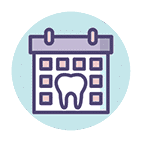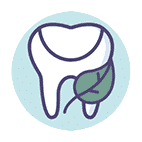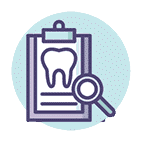
Youth: 7 to 19 Years of Age
Ep. 24 : Total Health Dentistry with Dr. Ali
Listen:
Dr. Ali
- Featured in publications such as Alive Magazine, The Globe and Mail, and The Toronto Star
- Sought by hundreds of Naturopathic Doctors across Ontario
- Planning guest lectures on his approach to Total Health Dentistry along with world-renowned Dr. Thomas Rau MD.

Reviews for Dr. Ali








Youth Aged 7 to 19
In this rerelease of episode 10, we will learn why airway-focused braces are so important, we will get wise about whitening teeth and we will clear up all the controversies about wisdom teeth – to pull them or leave them… What is best for you?
Listen:
Read:
Click here for full Transcript
Intro:
In the first of its kind dentists-to-patient podcast, you’ll gain incredibly valuable insight into the mouth-body connection. You won’t hear any fluffy filler here. You’ll actually be able to connect the dots. Join us for a worthy jolt of insight on the Total Health Dentistry podcast with Dr. Ali.
Dr. Ali:
Hey everyone, it’s Dr. Ali. In this episode, you’ll gain a worthy jolt of insight about Total Health Dentistry for our children and teens aged seven to 19. In the last episode, we focused on Total Health Dentistry for our toddlers aged four to six. If you’ve missed the opening five-part series, which laid out the framework for what constitutes Total Health Dentistry, make sure you go back and check out the first five episodes, as it will give this episode, and future ones, greater context.
So, in the last episode we looked at part two on watching your child sleep, part two on thumb sucking and soothers, we introduced the concept of pre-aligners, and I shared one rarely talked about nutrition tip. And I also asked for your questions and what topics of interest you have that we could discuss in future podcasts. In this episode, which is part of a 10-part series, we will discuss airway focused braces, teeth whitening, and wisdom teeth, clearing up all the controversies.
The age category seven to 19 is important in that it is really the last chance to use a child’s growth to our advantage. For this reason, this episode will focus heavily on airway focused braces. My goal for patients in this age category is to set them on their way into adulthood with their dental needs all looked after, no loose ends. They will be off to university or work or travel, and their dental care must be taken care of if at all possible.
All right. What is airway focused braces? In the previous nine episodes, we’ve discussed airway and structure in every episode. Well, airway focused braces is where the rubber meets the road. By that I mean airway focused braces is a method of doing braces where we not only straighten the teeth, but we open the airway. We allow room for the tongue, so it doesn’t have to be back near the throat and causing issues with swallowing and obstruction and breathing. And it’s all about finding a stable physiological bite, which isn’t going to be the same for everyone. Different body types, different ethnic background, etc. We all may need different bites, and to me airway focused braces allows us to find the best natural bite for that person.
Because we are doing more than just making the teeth straight, we’re treating the underlying causes of the crooked teeth. It’s always almost a two-phase treatment. Let me explain. In phase one, we want to treat the any number of muscles and habits that are pushing on the teeth and causing the crowding. We talked about habits previously, such as thumb sucking, soother use, etc.. Phase one treatment, this is done through oral myofunctional therapy and pre-aligners, which we briefly discussed in the last episode, and we’ll have many future episodes on this as well.
Well, this is also done through nutrition. In phase one we work on nutrition. If a person is eating foods that are causing low-grade inflammation of their adenoids and tonsils and their sinuses, among other areas, well that has got to be addressed to improve the airway. It’s common sense. We have discussed nutrition in some detail in previous podcasts, and I promise you we will have many, many more episodes about it in the future.
So after addressing the underlying issues with phase one, myofunctional therapy, pre-aligners and nutrition where needed, we stop and we take a look. How’s the airway? How’s the child doing? How is the young teen doing? How’s the bite? How do the teeth look? If the breathing has improved significantly, the teeth are looking good, then we’re all set, actually. We don’t need braces.
Matt: Wow.
Dr. Ali F.: Now if we still want to improve the appearance and the bite further, then we do braces, knowing that we’ve already corrected the underlying issue.
Matt: So it’s just purely cosmetic, really, right?
Dr. Ali F.: So now it’s cosmetic. Now it’s fine-tuning and detailing, which can be very important. But we’ve addressed the underlying cause. This two-phase treatment will result in a beautiful, balanced, healthy airway and bite, launching that child, that teen, into the next stage of life with the best access to the master nutrient. You remember what the master nutrient was?
Matt: Oxygen.
Dr. Ali F.: Oxygen. You got it. You got it. So naturally, this will give the child, the teen, the best chances to succeed in sports, school, career, relationships with others, and above all, relationship with themselves. That’s a critical relationship.
Matt: Absolutely. Yeah. This is so interesting, Ali. I mean, when I got, I’ve had braces done and when I got my braces done, it’s just, I was so unaware that there was underlying issues why I needed braces, you know what I mean? I thought this was just a purely cosmetic, like, “I’m going to get my teeth straight.” Right? I didn’t know that it was doing all of these things in the background.
Dr. Ali:
Yes.
Matt: Your pre-aligners, getting your airway going through, right? It’s so interesting.
Dr. Ali:
Yes. Yeah, absolutely. Total Health Dentistry, it’s a unique dialogue now, but I’m sure it won’t be unique. This will be pretty standard-
Matt: Absolutely.
Dr. Ali:
In a number of years. But right now it’s a little bit unique. And again, this is why I decided we’ve got to do this podcast and to create a community of Total Health Dentistry listeners.
Matt: Absolutely.
Dr. Ali:
So the children, teens, everybody, all age groups, can get what they’re looking for.
Matt: Mm-hmm (affirmative). Mm-hmm (affirmative).
Dr. Ali:
So also what’s important in this age group teeth whitening.
It’s not uncommon to have yellower teeth in this age group in particular that we might want. This is almost always not from inside, but stain on the outside of the teeth. Blueberries, raspberries, beets, kale, all the good foods, they all stain teeth.
Right? They’re very healthy foods, but they all stain teeth. So if your child is eating quite well and their teeth are yellow, you’re not doing a bad job. It’s just because the wonderful foods they’re eating are going to stain the teeth. Now, add some plaque to the teeth that doesn’t get brushed away super well, well, voila, you’ve got really yellow or darker teeth.
We’re going to have future episodes on all the over the counter items to help work through the maze of whitening products and all over the counter oral hygiene products in fact. We’re going to have future episodes on that. And I thought it would be really interesting to look at over the counter products, not only in the pharmacy aisle but also in the natural health store aisle.
And so make sure you subscribe and do not miss the upcoming episodes, which I hope will give your family, your loved ones and yourself great value. All right, a very good do it yourself tooth whitening is activated charcoal and water slurry. You can get activated charcoal at an apothecary in your city or online, there’s online apothecaries. Mix it with a bit of water until it’s sort of like whipping cream consistency and then brush like you normally do.
Matt: Okay.
Dr. Ali: Now warning, you will look Gothic, right?
Matt: Yeah.
Dr. Ali:
Black will be everywhere. But guess what? Good news. It 100% washes away and when it does, it leaves your teeth whiter. And if it gets on your clothes, it 100% washes off clothes as well.
Matt: It won’t stain or anything?
Dr. Ali: Won’t stain.
Now if you don’t like the do it yourself, there are few more and more charcoal toothpastes out there that you can purchase. And I’ll review some of the top ones in future episodes. Now, if charcoal’s not your thing, there’s the tried and true home whitening available through your dentist or many other places. Now watch the concentration and the active ingredient. These whitening gels, they’re not toxic, I get that question a lot, and they don’t dissolve the enamel because they’re neutralized, but they work based on hydrogen peroxide or carbamide peroxide. Hydrogen peroxide is powerful. So I like its cousin called carbamide peroxide. It’s a little more gentle.
So watch the material and also watch the concentration. These whitening gels can go as high as 35%, which is way too high. So my sweet spot, my preference, is using a gel that has 10% carbamide peroxide or an 8% hydrogen peroxide.
It’s just mild enough, but it’s still got enough kick to work.
Matt: Yep. Nice.
Dr. Ali:
All right, let’s switch gears to wisdom teeth. Know when to hold them and know when to fold them. So if you know this take on Kenny Rogers’ famous line from The Gamblers, chances are then you actually don’t have wisdom teeth anymore. You’re old enough to not have wisdom teeth. But basically there are two camps… By the way, just off top, do you know what I’m referring to? Know when to hold them, know when to fold them? Kenny Rogers?
Matt: No. I know Kenny Rogers, but I don’t know the reference. Yeah, I haven’t seen The Gambler.
Dr. Ali: Do you have your wisdom teeth?
Matt: No, I got my wisdom teeth taken out.
Dr. Ali: You got them out? Okay.
Matt: I think I got them out when I was in grade 12, so, yeah.
Dr. Ali: Fair enough. So listen to this and see what you think. So there are basically two camps when it comes to wisdom teeth. One school of thought is that virtually no wisdom teeth should be pulled.
The other is that virtually all wisdom teeth should be pulled.
So let’s start with the hold them group.
Matt: Okay.
Dr. Ali: This group, understandably, wants to preserve teeth and not to fix it if it isn’t broken and to hold up their right to sort of fight back against the onslaught of the fold them group.
Right? The hold them folks will point to anthropology and they’ll say that our early ancestors, well they had all their wisdom teeth and so should we. Fair enough. They’ll also point to the many stories we’ve heard of people turning into chipmunks and the pain, the dry sockets, et cetera, et cetera, all the misery. And so the hold them group gets criticized though for never letting go of a wisdom tooth unless it was almost life or death.
The fold them group maintained that if there’s hardly room for the existing teeth, certainly there can’t be room for the wisdom teeth. They say that there is a window of opportunity where it is easier to pull them in this age group and significantly harder to remove them later on in life. So take advantage of the softer bone, the smaller roots, and do it now. The fold them group gets criticized for never having met a wisdom tooth they didn’t like to pull.
Okay. So obviously I’m being a little dramatic here for a fact. I’m guilty. But you get the point. There are these two camps. What is my Total Health Dentistry take? To the hold them group, I would say consider the following. Well, our ancestors had no modern air, no water and no food pollution to mess up their airways and structure. So their jaws grew to full size and they had room for their wisdom teeth. No problem. Today, modern civilization has made a very uncivilized mess of our environment and our jaws usually simply just don’t grow large enough to allow the wisdom teeth to come in. Well, certainly not well enough to keep them clean for the next 70 to 80 years.
The hold them group has the famous don’t fix what ain’t broken view. And to this, I would say consider this. If that wisdom tooth comes in, let’s say 50% ideally, halfway in, but it’s not quite ideal. Example, you can’t clean the outside and the back of the tooth because it is just jammed against the corner of the mouth and cheek. Now, our teen who we’re talking about is let’s say 18 years old, no pain, no irritation, fine, all good. Well, a decade goes by, they’re now 28, still have no pain, their immune system is fantastic. Another decade goes by, they’re 38 now, no pain, but life stresses are basically in full force now and so on. And now it’s 68. Since 18 years old, when we first started the story where the wisdom teeth first came in, it’s been 50 years of not being able to clean that back tooth properly.
What are the chances that this individual will make it to 78, 88, with no gum infection, no cavities around this molar? Well, I can answer that. It’s next to zero. I’ve worked with geriatric populations before. Sadly, there were infected wisdom teeth commonly that were left alone until “it bothered them.” Well, when it bothered them, that dear 78-year-old lady was in a wheelchair, hard of hearing, and I still remember this patient. I mean it’s too late at that point. Somebody waited for that tooth to be hurting before acting and when it hurts to act, it’s not a good age group to be acting.
Matt: No, absolutely.
Dr. Ali:
Well to the fold them group, I would say to consider that we actually have to assess the growth pattern of the child. If they have great airway, great nutrition, their jaw is going to reach its potential and they most likely will have room for the wisdom teeth. So that’s a key factor that mustn’t be overlooked. Now, in my career, sadly I haven’t seen many teens reach their full growth potential because of the compromised airway, nutrition and thus structure. Thus the vast majority of the time I can see a bottleneck. The jaw isn’t growing adequately wide and long. If the teeth are coming in, and short of major airway and nutrition changes, it’s best to get the wisdom teeth out before the roots are over 50% formed. So it’s much easier on the patient to remove when the teeth are half of their full-grown size.
So to the fold them group, I would say let’s assess the child, airway, nutrition, structure. If we can see things are going our way really well, then we can leave the wisdom tooth alone. And if they’re not, then we should intervene sooner.
So, in summary, I’m all in favour of holding them if I see we are headed down the road of great airway and a big jaw structure. If not, if I can see the teeth piling up on the 401, then waiting until they’re broken, meaning they’re infected or have a big cavity, which actually could take decades, that’s a really bad idea and it leads to much pain and suffering down the road. If a dentist advises to wait until they hurt, wait until it “needs to be done”, I would suggest that they strongly go to a geriatric care home and have a look at those people there, the patients there, with teeth, and see how those teeth that were left to pull until they hurt, how those teeth and how those patients are doing. It’s not pretty.
If a wisdom tooth isn’t cleansable at age 18, it’ll be terrible 70 years later at age 88. And I feel very, very strongly about this.
Okay, so let’s say we can see there isn’t enough room and they should come out. Should we do them all at once? I used to think yes, do them all at once. Sedation, one-shot is best for the patient. And while I think doing them all at once can make sense still, at times, the fact is that lower wisdom teeth are easier to remove early and upper wisdom teeth are easier to remove later.
Okay? So the way lower wisdom teeth and jaws are shaped, if the wisdom teeth need to come out, get the lower wisdom teeth out around age 14 to 16 years of age, before the roots fully form. The way upper wisdom teeth and jaws are shaped, once lower wisdom teeth are out, the upper ones have no dance partner, so they are useless as molars but they’re actually easier to remove later, sometime in the 20s.
Matt: Wow.
Dr. Ali : With a very smooth recovery. So if cost is an issue in your 14, 16, timing, et cetera. No problem. Get the lower ones out first and then you can wait and do the upper ones later on. It’ll be easier, less cost, easy recovery.
So I hope you gained some value from this stroll through the Total Health Dentistry age category from the seven to 19 age group. Please subscribe and I hope you join us for the next episode.
Okay. Thanks again for joining us for this episode. As we looked at the growing child and entering into the teenage years, age seven to 19. In this episode we introduced this notion of airway focused braces, a major, major topic in Total Health Dentistry and we will have many more episodes about that in the future. I wanted to spend a little bit of time in this episode talking about teeth whitening. We did that. And of course we finished with some thoughts on wisdom teeth, trying to clear up the controversies about keeping them versus removing them. So I hope that was all very valuable to you. Next episode, we will turn our attention to the early adulthood years. Join us then.
Legal:
Please note that Dr. Ali Farahani is a general dentist and that Total Health Dentistry is not a specialty of dentistry. While we make every effort to broadcast correct information, dentistry is a constantly changing science and art. One doctor may have a different way of doing things from another. Dr. Ali Farahani is simply presenting his views and opinions that will be as evidenced based as possible. We welcome any comments, suggestions, or corrections of error.
Dr. Ali Farahani takes no money from drug or device companies. By listening to this podcast or reading this blog you agree not to use this podcast or blog as medical advice to treat any medical condition in either yourself or others, including, but not limited to patients that you are treating. Consult your own physician for any medical issues that you may be having. This entire disclaimer also applies to any guests or contributors to the podcast or blog. Under no circumstances shall Sante Family Dental, Dr. A. Farahani Dentistry Professional Corporation or Dr. Ali Farahani, or any of their employees, associates, or affiliates, any of the guests or contributors to the podcast or blog, be responsible for damages arising from use of this podcast or blog.
Ages 4 to 6
Young Adult
Reviews of Podcast
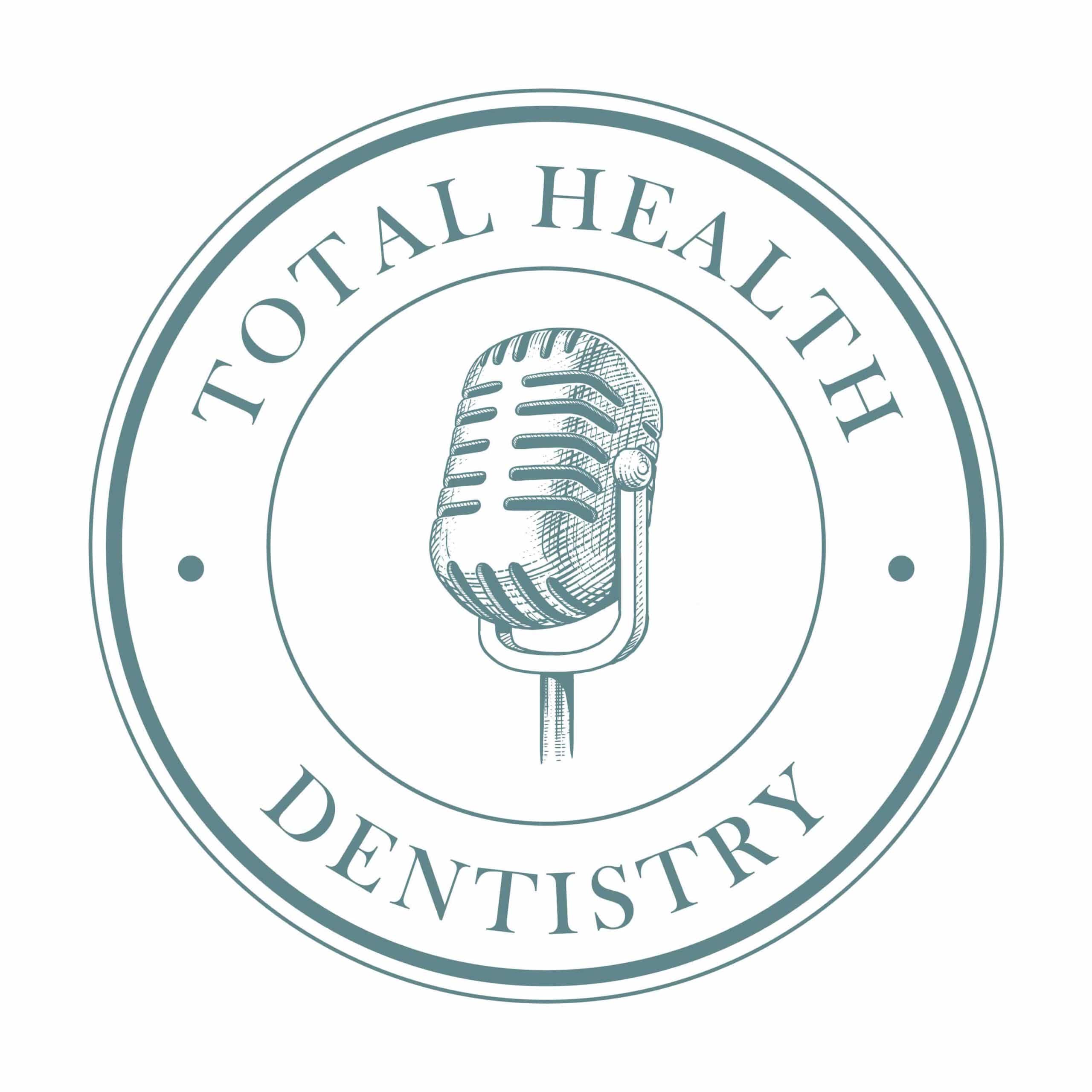




Subscribe to the Total Health Dentistry Podcast:
Or subscribe with your favorite app by using:
https://santefamilydental.ca/feed/podcast/
Podcast: Play in new window | Download | Embed

